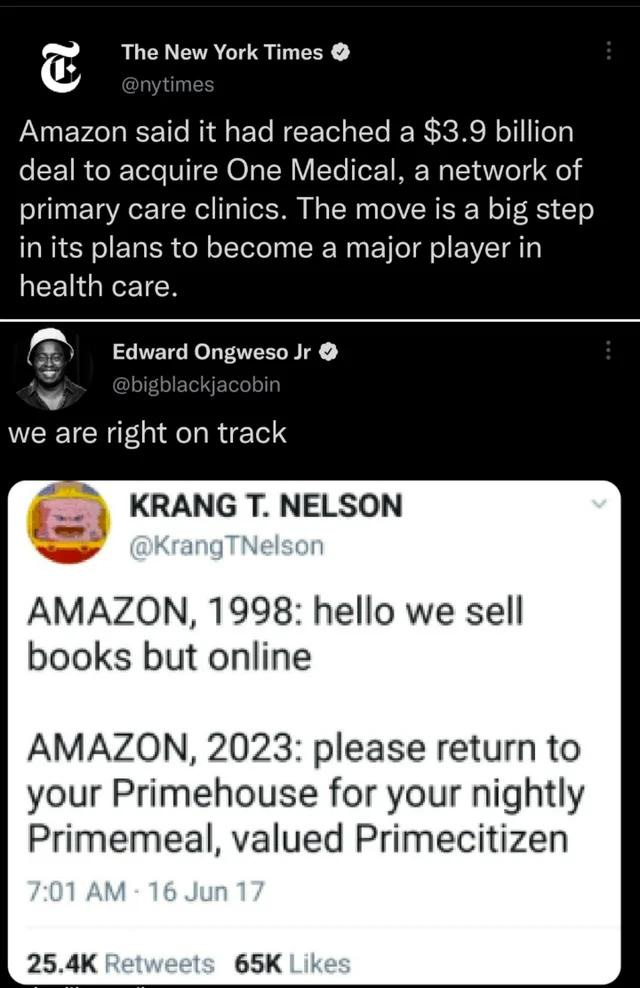What makes a people’s (e)-commerce possible?
Dear Reader,
Digital Public Goods (DPGs) – referring to digital products, services, and infrastructure that are publicly owned/managed – have become a buzzword in digital policy circles.
DPGs have demonstrated the potential to disrupt existing monopolies and effect a shift in the balance of power towards more equitable and vibrant digital ecosystems. As the widely cited case of the Unified Payments Interface (UPI) in India shows, it is possible for a well-designed public alternative (to private standards and protocols) to see wide-scale adoption and even lead to the disruption of the well-worn and dominant rails of payment networks such as VISA and Mastercard.
But as with all good ideas, the need for the right checks and balances stands, without which, such endeavors are always at the risk of co-option, or become a way for freeriding by corporate giants.
This month on DataSyn, we deep dive into the promise and perils of Digital Public Goods through an exploration of India’s Open Network for Digital Commerce. Our second piece, an oldie but goodie from our archives, serves as an apt companion to this discussion. We unpack the gilded promise of digital commerce for women’s empowerment, and argue for the need to rethink the politics of international trade to actualize this possibility.
The Datasyn Team
THE NEW DIVERGENCE
Can Public Goods be the Answer to Fixing E-commerce?
Carina Singh
India’s recently unveiled Open Network for Digital Commerce aims to be a democratizing force in the country’s e-commerce sector, seeking to displace the hegemony of the Amazons of the day and create a more competitive and diverse field. Carina Singh analyzes this ambitious undertaking. Through interviews with stakeholders, she probes into the many unanswered questions and dangers that remain with such a project, from lack of data protection and regulatory oversight, to corporate co-option.
Read on.
THE POLICY TABLE
No Magic Bullets: Reclaiming the Transformatory Potential of E-commerce for Women’s Empowerment
Nandini Chami
in 2018, it was touted at the WTO Public Forum that inclusive digital trade had to involve leveraging technologies to empower women in the developing world. What would it take for e-commerce to facilitate women’s economic activity at a genuinely transformative level? Nandini Chami incisively reflects on this question, outlining the kind of state-led mediation that is required, as well as the hazards of digital trade negotiations that threaten the autonomy and policy space of the developing world.
Read on.
The Sins and Synergies Lounge
With over one billion monthly active users, TikTok is turning to e-commerce to monetize the abundant data it captures from its users. In this piece, Meaghan Tobin and Randy Mulyanto explore the intricacies of TikTok’s social media e-commerce strategy and the marketing techniques of small sellers that blur the line between consuming content and window-shopping.
What are the key predicaments we face amidst an ever-expanding digital capitalism? What are likely to be the decisive struggles on this frontier, and what might be effective paths of resistance? Tune in to this fascinating panel discussion between Anita Gurumurthy, Miriyam Aouragh, Seda Gürses, Nick Couldry, and Jack Qiu at TNI’s recently held 2022 State of the World conference to learn more.
In order to curb the ruthless expansion of homegrown e-commerce monopoly MercadoLibre, the Argentinian government has chosen to traverse the path of realizing a public digital economy. Read about their ambitious project of nationalization – Correo Compras – a state-owned e-commerce platform that is run by the postal service, with the potential to rival Big Tech.
Some of the most concerning forms of disruptive transformations occurring today are in our food systems and agricultural sectors, and it is crucial to track the way power relations are being shaped on this front. In doing so, check out the ETC group’s penetrating analysis in its new report, Food Barons 2022: Crisis Profiteering, Digitalization and Shifting Power.
The realm of influencer-marketing continues to augment as social media becomes central to the eyeball economy. Gone are the days where the journey from an influencer’s post to their advertised product is disruptive to social media’s immersive experience; Michael Waters explores the emerging “link-in-bio” companies that play the unique but pivotal role of being middle-men between social media monopolies and e-commerce giants.
Post-script
DataSyn is a free monthly newsletter from IT for Change, featuring content hosted by
Bot Populi. DataSyn is supported through the Fair, Green, and Global Alliance.
Liked what you read? To have such concise and relevant analysis on all things Big Tech delivered to your inbox every month, subscribe to DataSyn!






